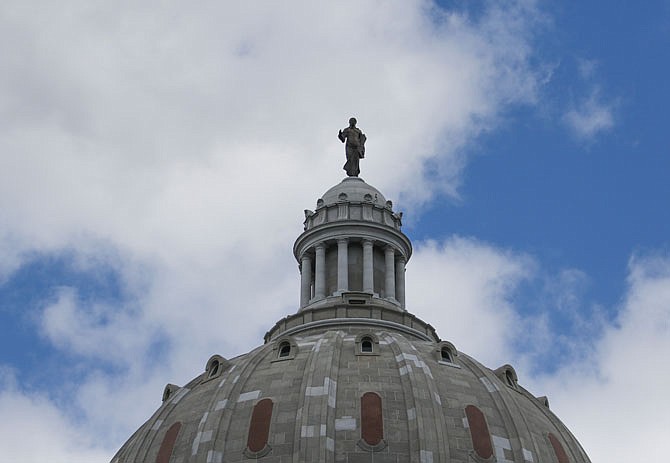Missouri's General Assembly made swift work of $35.7 billion in appropriations Friday, passing 15 bills to fund state government operations and capital needs while leaving one big question, worth about $2 billion more, unanswered.
The operating budget increases state support for school transportation to its highest level in years, provides a modest boost to higher education funding and increases payment rates for those who provide services to people with developmental disabilities.
But it does not fund the expansion of Medicaid eligibility set to take effect July 1, and no lawmaker - whether voting for or against the bills - went home after adjournment expecting the issue was settled.
Gov. Mike Parson must decide whether the Department of Social Services will provide coverage as directed by the constitutional provision approved by voters in August. And whatever he decides, Senate Minority Leader John Rizzo told reporters, the issue will land in court.
Backers of expansion will sue if services are denied and opponents will sue if they are provided, Rizzo said.
Democrats argue the question of eligibility for services is settled, and it is only a question of when the money will be appropriated.
"The Republican legislature has punted their duties to a judge, and it is unfortunate that has happened," Rizzo said.
Republicans hold more than two thirds of legislative seats and overwhelmingly opposed funding services to the expansion population of about 275,000 working-age adults. That opposition was stated repeatedly and by large legislative majorities, House Budget Committee Chairman Cody Smith, R-Carthage said at a separate news conference.
The breakdown of costs, according to Parson's budget, is $1.65 billion from federal funds, about $130 million from the state general revenue fund and the rest from a variety of sources, including taxes on medical providers.
The executive branch should not obligate the state to pay that cost, Smith said.
"This budget tells them there is no money for the Medicaid expansion population," he said. "In my mind, there is no need to enroll that population as there is no money to provide a benefit to them."
But for Senate Majority Leader Caleb Rowden, R-Columbia, the budget approved Friday provides funding for everyone who is eligible for Medicaid in the new fiscal year. It may not be enough for the full year, but it doesn't exclude those who become eligible July 1.
"My perspective has always been that, at the end of the day, if the governor doesn't freeze enrollment of the new population when they are eligible, then there is money in the budget for those folks to enroll," Rowden said.
The state has already submitted its coverage plan for federal approval.
The biggest question the courts will answer is whether the new section of the Missouri Constitution passed as Amendment 2 violated an existing section that prohibits initiatives that appropriate money without providing a source of funds. A pre-election court challenge to Amendment 2, arguing it violated that section, left the question unsettled.
During floor debate, Democrats emphasized Amendment 2 passed and voters expect it to be implemented.
State Rep. Sarah Unsicker, D-Shrewsbury, read a list of mostly rural counties where more than 20 percent of the population is unemployed. All voted against Medicaid expansion.
"If we don't fund Medicaid, not only are we gambling with our federal funding, but we will also risk an expensive lawsuit," Unsicker said. "I just hope that we don't employ contract attorneys that charge $500 per hour like the Gaming Commission did last year, because spending money like that to keep from doing what voters decided is not fiscal responsibility."
During the debate, Republicans pointed to rate increases for many Medicaid providers and said the extra funds will help support existing Medicaid clients, who have the greatest need.
And they took offense at suggestions they were not acting in the best interests of their constituents.
"I take issue, I wonder if you do, with the thought that we don't know what's good for our own counties and our people," House Budget Committee Vice Chairman Dirk Deaton, R-Noel, said. "Rural Missouri voted overwhelmingly against Medicaid expansion, but yet, we seemingly are too backwards to know what's good for us."
The Missouri Independent is a nonprofit, nonpartisan news organization covering state government and its impact on Missourians.

